
What is Classical Lutheran Education?
Classical education, which has seen a renaissance in popularity in recent years, is best described by its end goal. The goal of classical education, unlike the majority of modern education, is not career or money, but a joyful flourishing life in Christ. While the theory of modern education is that by giving a student the skills necessary for a career they will be free to explore their potential, what it actually does is simply fit them into the economic wheel. It doesn’t free them, it just makes them a clog in the system.
Classical education on the other hand, which uses a framework of grammar, logic, and rhetoric, and prioritizes truth, goodness, and beauty, truly frees a student to be able to know how to think and live within whatever vocation God may place them.
With the end in view, here are core philosophical ideas, or pillars, behind our classical approach, beginning with…the beginning:
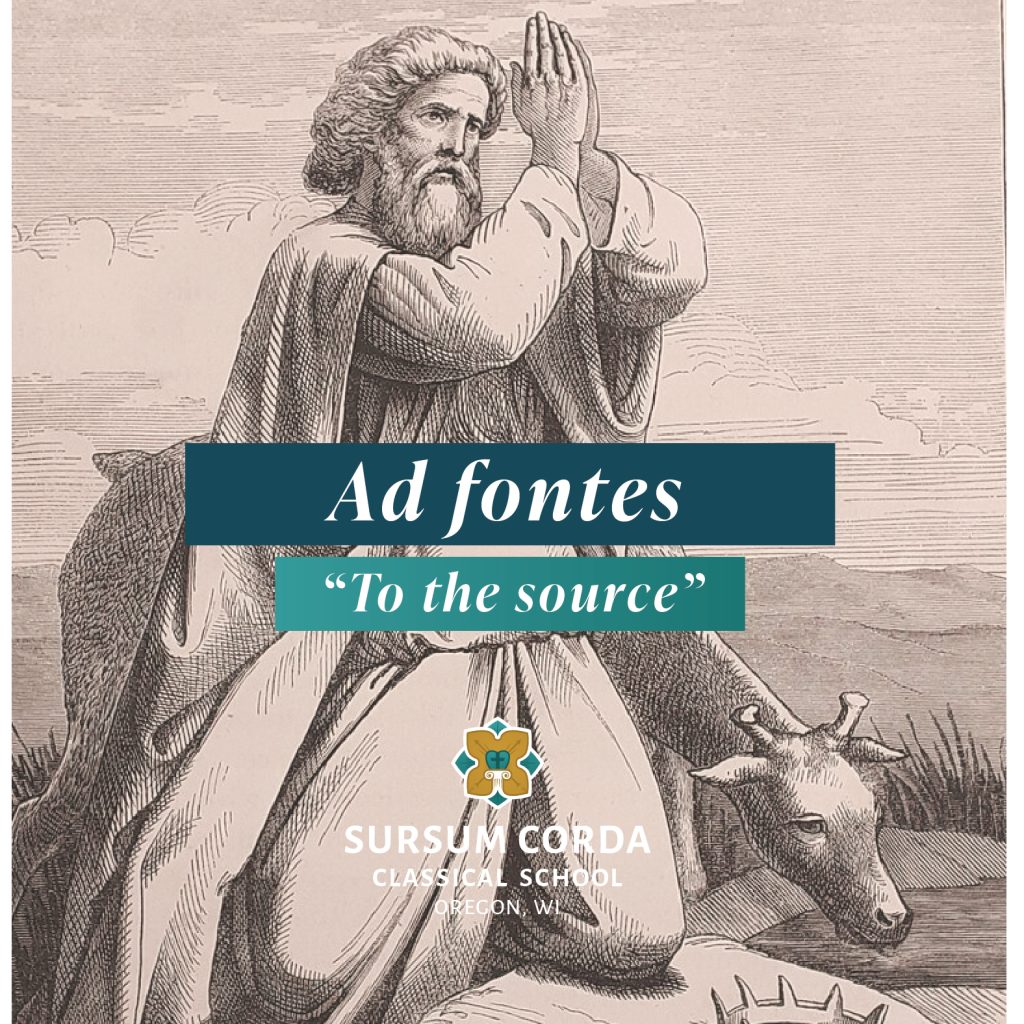
Ad Fontes – “To the Source”
In Classical Education, rather than reading about things from modern perspectives, we go directly to the source, (as if to the font or stream, where the refreshing water begins to flow). This idea comes from Psalm 42 “As the hart [deer] pants for streams of water, so my soul pants for you, O God.”
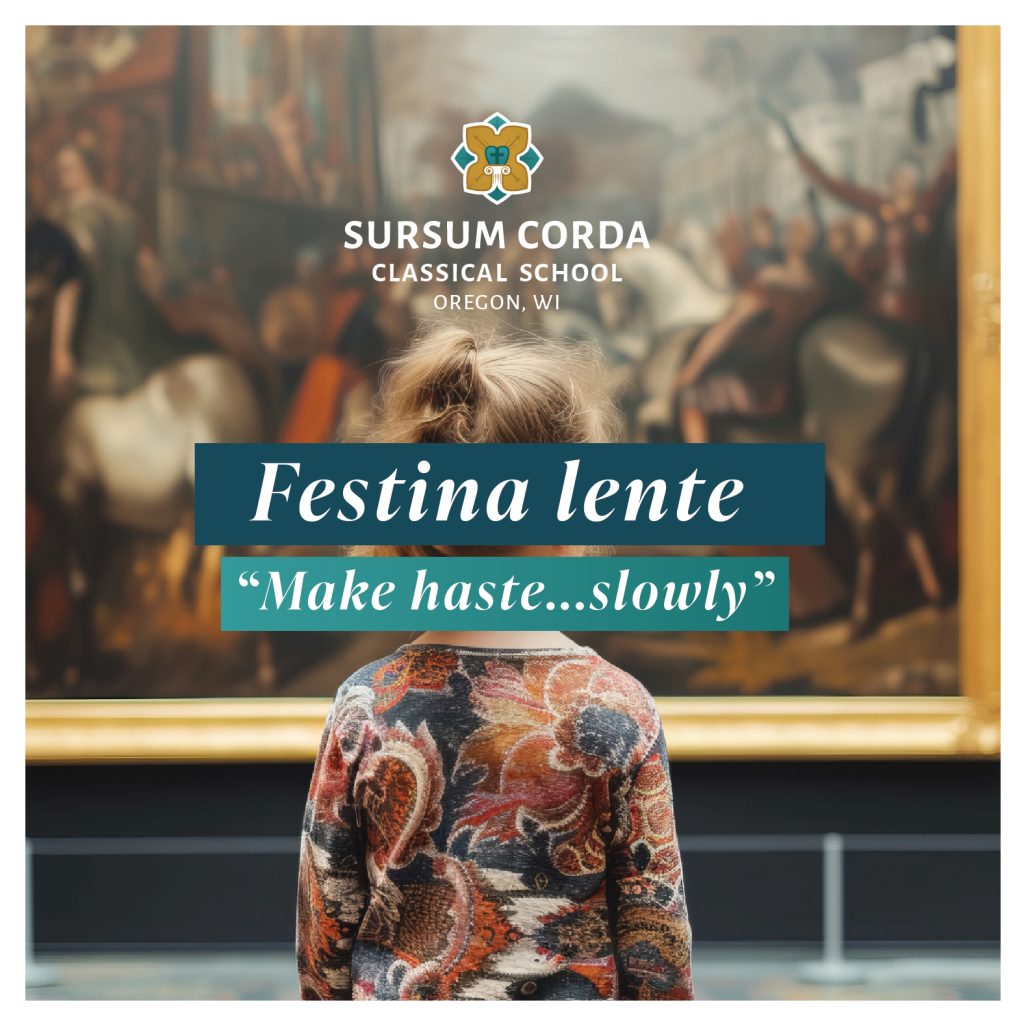
Festina Lente – “Make Haste…Slowly”
If career and money are not the end goal, neither is anything in this world. As such, we do not need to run around trying to gain the world, when we have it already. We are free in this world to explore. Scholé, after all, is the Greek word for “leisure,” from which comes the original word for “school.” A scholé-filled classical education is not about idleness, but a vigorous energy of wonder.
Our hybrid approach will bring in parents to be intricately involved in their child’s education, but not in a way to burden either child or parent, but to free them. We hope to allow parents to teach from a position of rest or leisure, not frustration or fear.
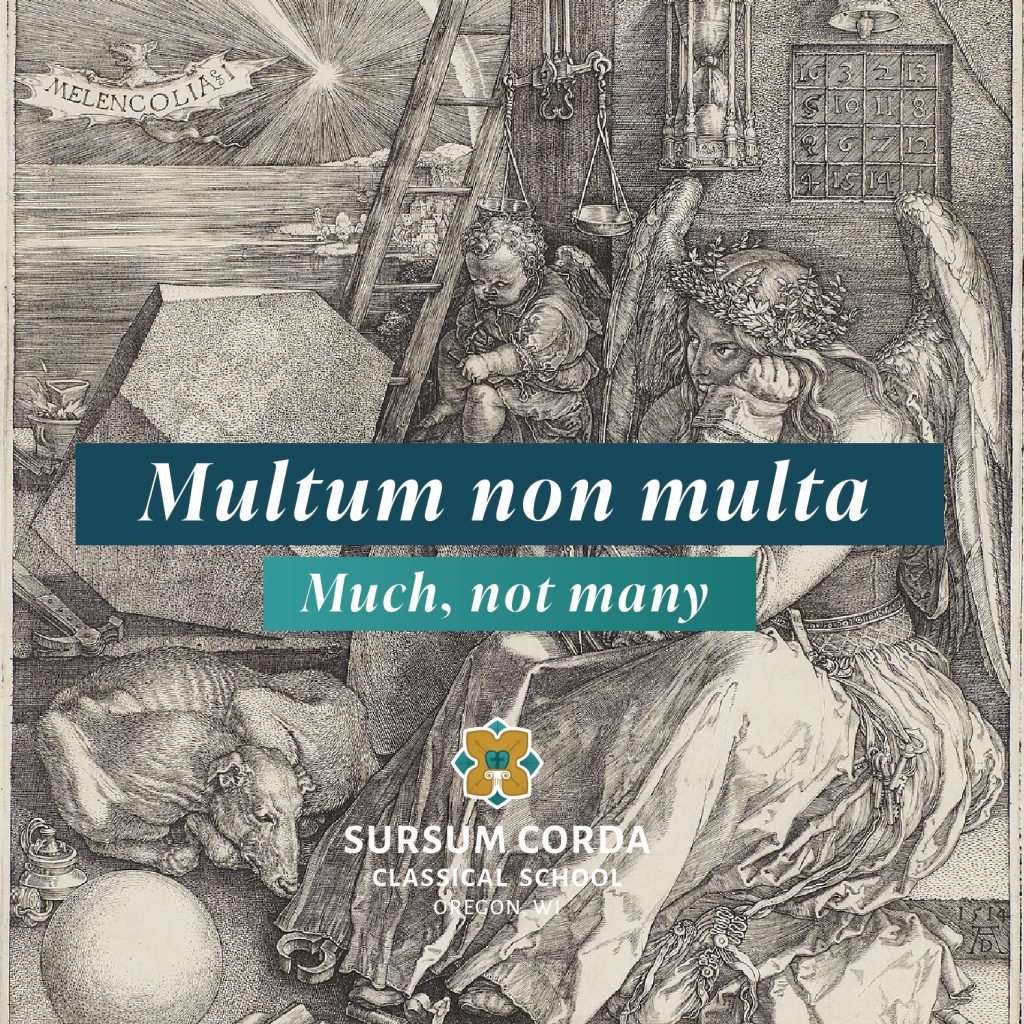
Multum Non Multa – “Much, not many”
Scholé encourages the pursuit of deep contemplation accomplished through a multum non multa (“much, not many”) approach where students focus deeply on fewer subjects instead of broadly skimming the surface of many. Most modern schools, on the other hand, attempt to fire as much content at you as possible and hope something sticks without much depth in any of it.
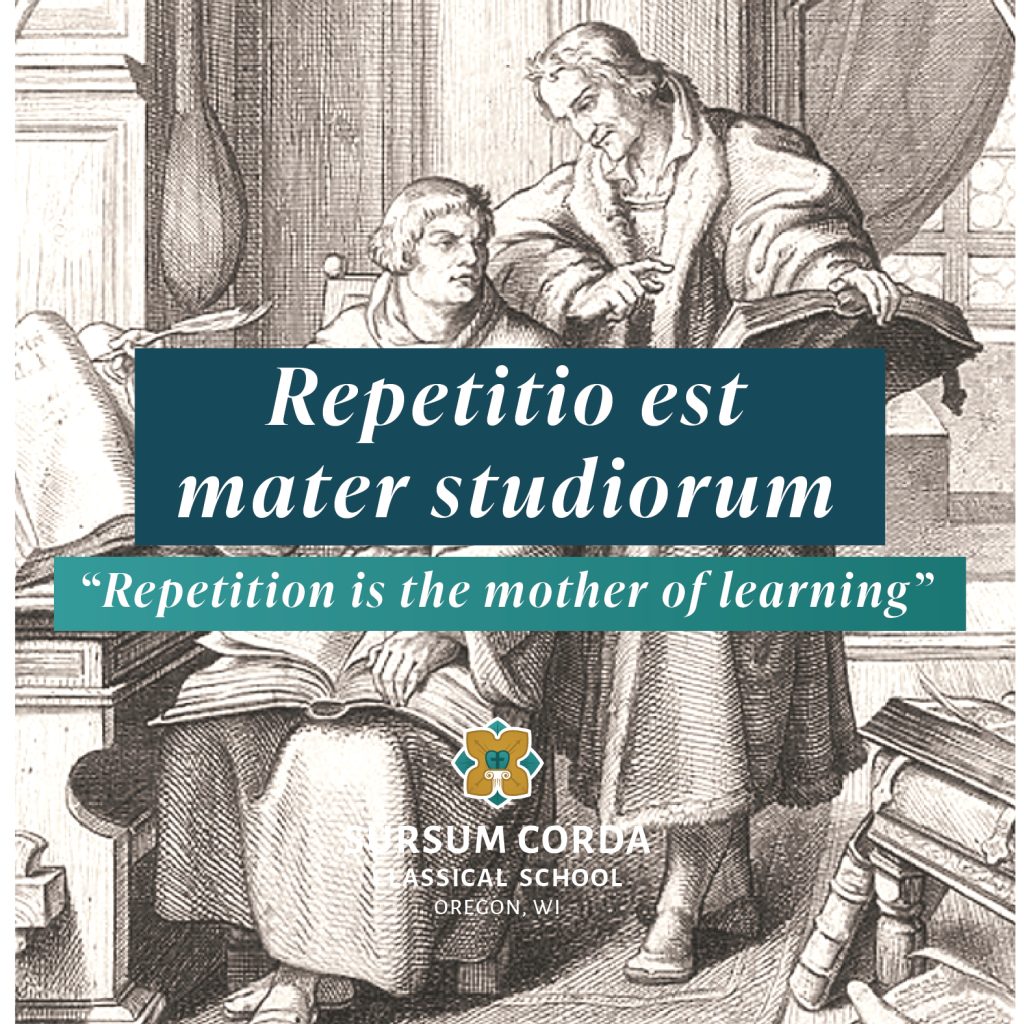
Repetitio Est Mater Studiorum – “Repetition is the mother of learning”
This is simply a recognition of how the human brain works. Our integrated curriculum of the Eight Arts of Freedom allows the brain to make more connections and to remember better. The way that’s done is through repetition (not a mindless drilling of facts, but rather a natural process for memory).
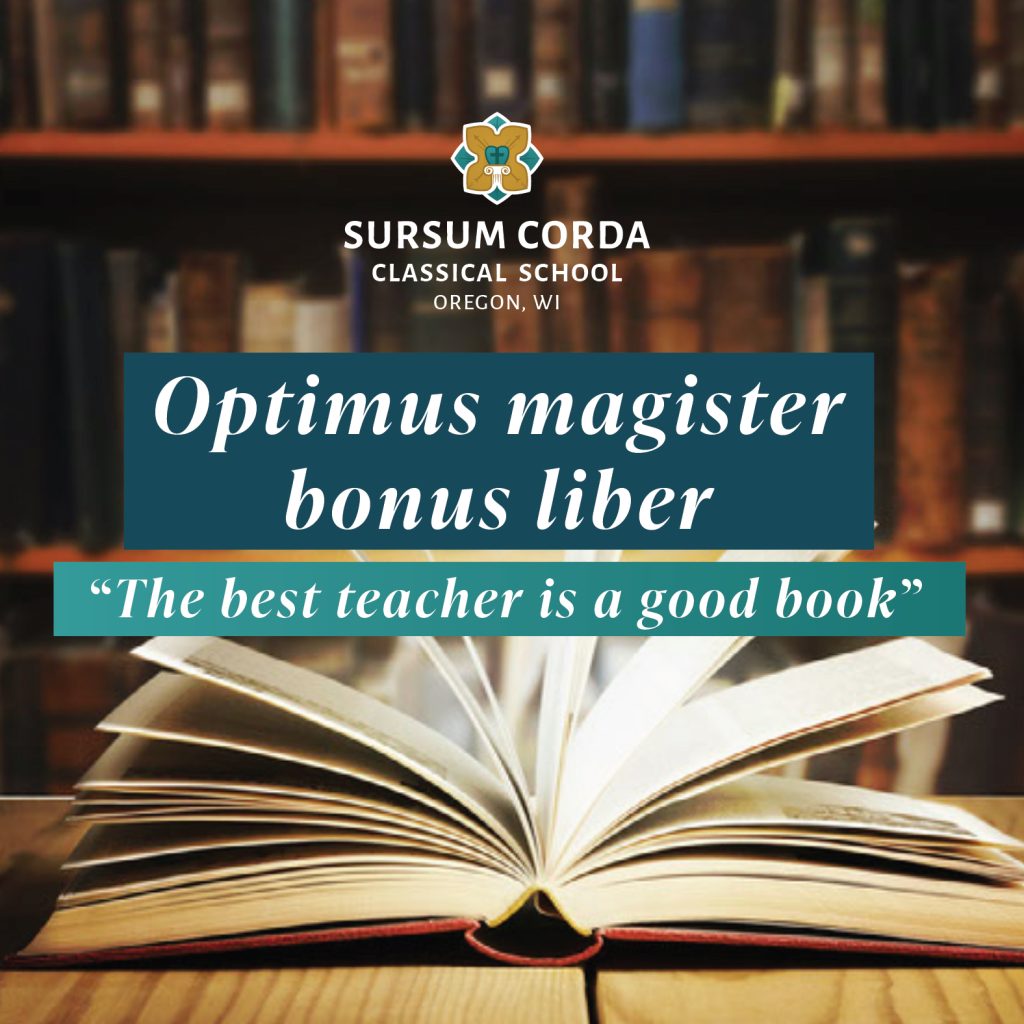
Optimus Magister Bonus Liber – “The best teacher is a good book”
We do not have a large facility. We don’t have many students (at least yet). We don’t have many of the bells and whistles of a publicly funded school. But we have what matters: we have teachers who care, we have a few students, and we have good books.
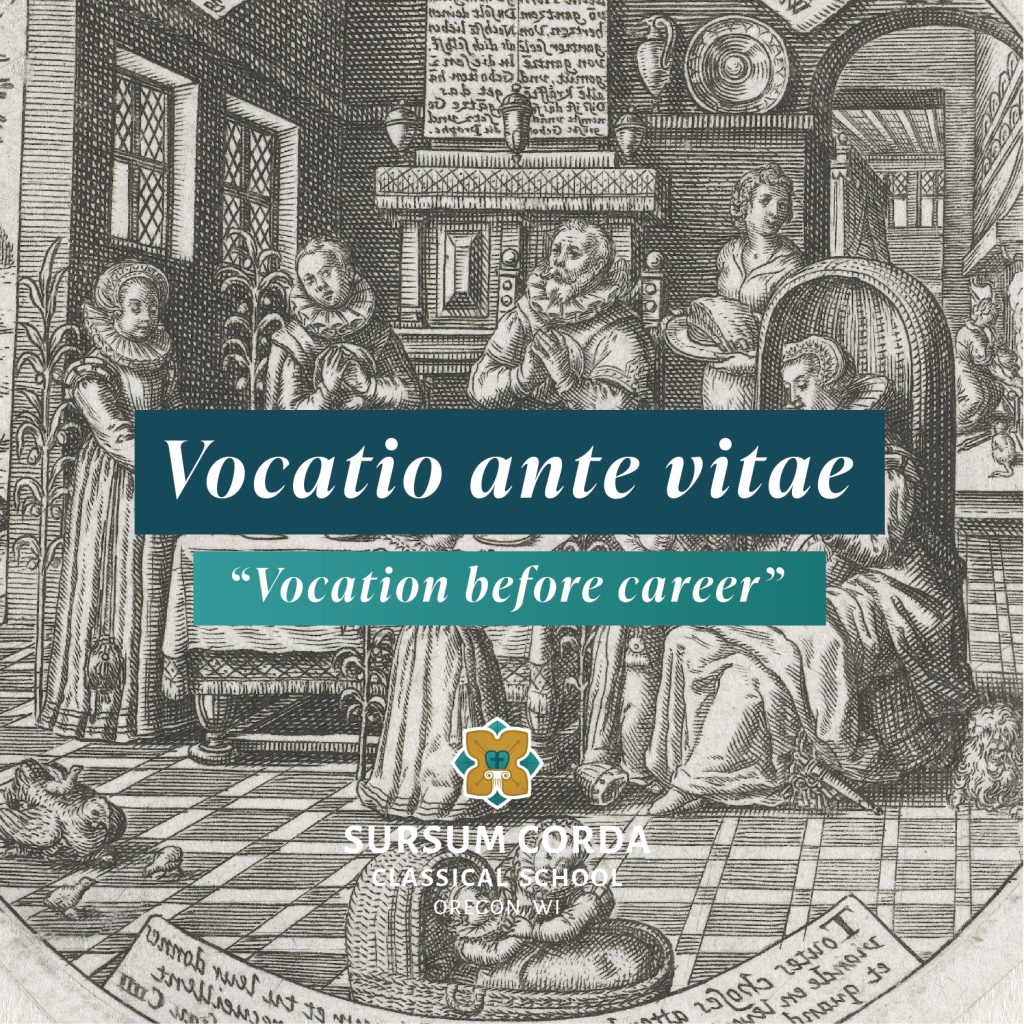
Vocatio Ante Vitae – “Vocation before career”
If career is not the most important thing in our earthly life, then what is? Is it not the estate of the home, the family?
Girls should not be shamed into getting an office job away from the home. Likewise, boys should not be shamed for wanting to protect their families or their country. Education should teach the beauty and goodness of marriage, not tell kids that their career is more important or should come first.
We believe and we’ll teach that men are men and women are women, with God-given and beautiful differences and vocations, and that, as God allows, to be a father is greater than being the president of the United States, and to be a mother is greater than being a queen.
And we absolutely don’t want to take the place of parents. We want to create a culture where students learn to honor and love their parents, and where parents are supported in their highest vocations as the primary influencers in their children’s lives.
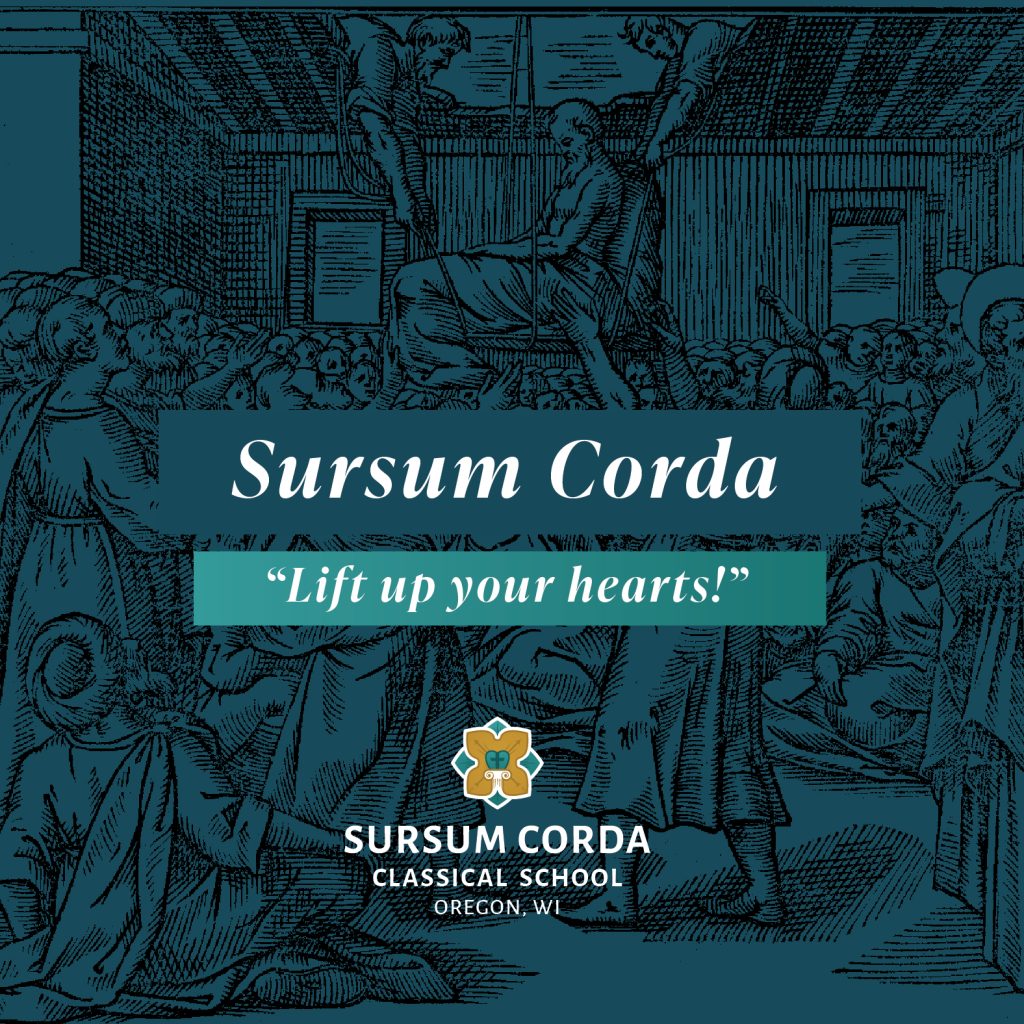
Sursum Corda – “Lift up your hearts!”
From Psalm 25:1. “To you O Lord, I lift up my soul.”
The word for “soul” in Psalm 25 means so much more: it means ‘heart,’ ‘mind,’ ‘strength,’ even our ‘whole being.’ With the Gospel of Christ and the forgiveness of sins forming the foundation of the school, we want to truly lift students’ hearts up – free from sin and the worries of the world.
The Gospel is good news. We want to teach what is true, good, and beautiful, we want that for the students as their families as well. In the Gospel of Matthew, some men bring to Jesus a man paralyzed, lying on a mat. Jesus sees them and He quotes from Psalm 25. To the amazement of all, Jesus says to the man, “Take heart, son! Your sins are forgiven.”
Jesus told the man: “Lift up your heart.” To what end?
Upon receiving the forgiveness of His sins, the man was enabled to “pick up his mat and go home” (Matt. 9:2, 6). He could go home and freely fulfill the duties of His vocation, whatever it may be.
In summary, the basic difference between modern or progressive education and classical education can be summed up like this: Classical education believes students are souls to be nurtured, not products to be measured.
Classical education believes students are souls to be nurtured, not products to be measured.
It would be our privilege to give students in Oregon, WI and the south side of Madison the gift of a freeing education. To God alone be glory.


